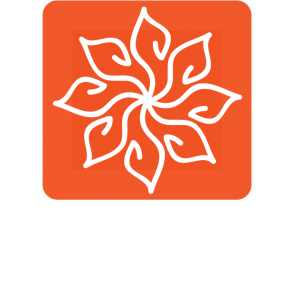Treating Hot Flashes
The most common menopause-related discomfort is the hot flash. Most women have them off and on for only a few years, but a small percentage of women have them for life. Good news! Hot flashes can usually be reduced or eliminated completely through one or more of the following options.
Lifestyle Changes
Although the following approaches are currently not well supported by research, they will do no harm, cost nothing, and may offer some women relief for mild hot flashes.
- Avoid any personal hot flash triggers, which may include external heat, strong emotions, hot drinks or foods, alcohol, caffeine, and cigarette smoking.
- To reduce stress and promote more restful sleep, exercise regularly, but not too close to bedtime.
- Meditation, yoga or tai chi/qi gong, biofeedback, positive visualization, acupuncture, or massage will also help keep stress levels low.
- When a hot flash is starting, try “paced respiration” (slow, deep, abdominal breathing in through your nose and out through your mouth).
- Try different strategies to stay cool while sleeping. Dress in light nightclothes. Use layered bedding that can be easily removed during the night. Cool down with an electric fan. Keep a frozen cold pack under the pillow, and turn the pillow often so that the head is always resting on a cool surface. If you awaken from sleep, sip cool water. Learn effective techniques for getting back to sleep. For instance, don’t just lie there, but get up and read until you become sleepy.
Non-Prescription Remedies
Although some women report that various nonprescription remedies help relieve their hot flashes, scientific studies are lacking to support their use. Many experts believe that hot flash relief reported while using these remedies can be attributed to the “placebo effect.” Many times, a placebo (dummy medication) has been found to be effective in a scientific study. In studies about hot flashes, a placebo has been found to be effective up to 40% of the time.
Nonprescription options used for hot flash relief include the following:
- Consuming isoflavones, most commonly found in soy foods, has been found in some studies to reduce mild hot flashes by 15%, but many other studies show no effect at all. Eating one or two servings of soy foods daily (25 grams of soy protein) may bring greater benefits than dietary supplement pills. Low-fat varieties of tofu, tempeh, soymilk, or roasted soy nuts are good choices. Results, if any, may take weeks.
- In some studies, use of Remifemin (a brand of dietary supplement pill containing the erb black cohosh) decreased hot flashes. Women taking two 20-mg tablets per day for 8-12 weeks reported improvement in mild hot flashes. However, not all studies show this positive effect. Again, it may take weeks to see results.
- Other nonprescription remedies, including topical progesterone cream, have not been found to be effective in relieving hot flashes.
Prescription Therapies
The following prescription drugs have the greatest chance of relieving very bad hot flashes. They all have contraindications and side effects, so not all are appropriate options for all women.
Multiple studies have proven that prescription hormone therapy with estrogen remains the most effective treatment for hot flashes, and often with lower doses than those used in the past. Systemic estrogen therapy is the only government-approved therapy for treating hot flashes, and the approved indication is for moderate to severe hot flashes.
During perimenopause, a woman who needs contraception plus hot flash relief can choose a combination estrogen-progestin birth control pill, provided she is healthy and does not smoke. Progestin-only contraceptives are available for women who can’t use estrogen.
When hormones are not an option, some women may try the following non-hormonal prescription medications. Some research supports their use.
Drugs approved to treat depression:
- paroxetine (Paxil, 10-20 mg/day)
- fluoxetine (Prozac, 20 mg/day)
- venlafaxine (Effexor, 25-150 mg/day)
- A drug approved to treat epilepsy and migraine: gabapentin (Neurontin, 300-900 mg/day)
This MenoNote, developed by the Consumer Education Committee of The North American Menopause Society, provides current general information but not specific medical advice. It is not intended to substitute for the judgment of an individual’s healthcare provider.
Copyright © 2005, The North American Menopause Society. All rights reserved. NAMS grants permission to healthcare providers to reproduce this MenoNote for distribution to women in their quest for good health.





